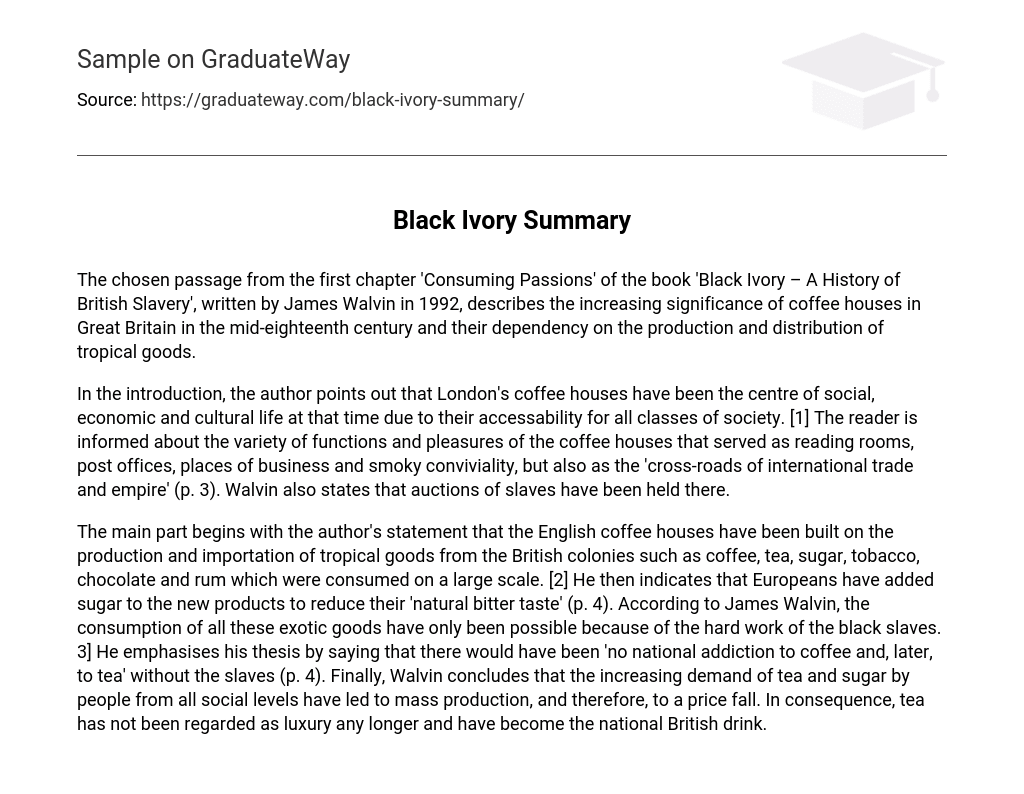The passage from the first chapter of the book ‘Black Ivory – A History of British Slavery’, written by James Walvin in 1992, discusses the growing importance of coffee houses in mid-eighteenth century Great Britain and their reliance on the production and trade of tropical products.
In the introduction, the author highlights that London’s coffee houses were at the heart of social, economic, and cultural life during that period. These coffee houses were accessible to all social classes, serving various purposes such as reading rooms, post offices, business venues, and places for enjoyable gatherings. They were also significant hubs for international trade and empire activities. Additionally, Walvin mentions that slave auctions even took place within these coffee houses.
The author begins by stating that English coffee houses were built upon the production and importation of tropical goods from British colonies, such as coffee, tea, sugar, tobacco, chocolate, and rum. These goods were consumed on a large scale. The author notes that Europeans added sugar to these new products to reduce their natural bitter taste (p. 4). According to James Walvin, the consumption of these exotic goods was only made possible through the labor of black slaves (p. 3). He emphasizes this thesis by stating that there would have been no national addiction to coffee and tea without the slaves (p. 4). Lastly, Walvin concludes that the growing demand for tea and sugar from people of all social classes led to mass production and a decrease in prices. As a result, tea ceased to be considered a luxury and became the national British drink.





